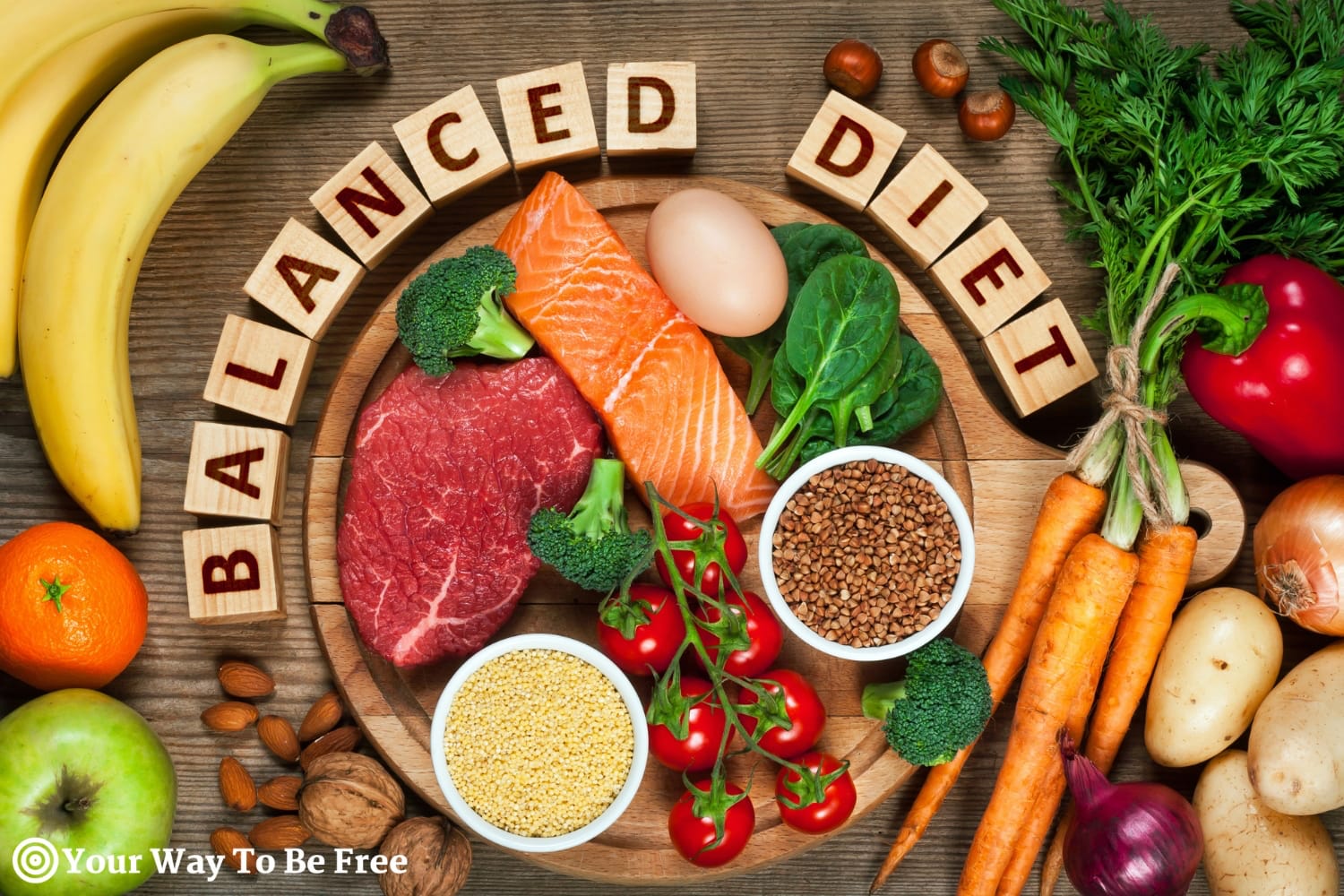Eating a balanced diet is crucial for maintaining optimal health and well-being.
A balanced diet includes a variety of foods from all the major food groups, including fruits, vegetables, whole grains, lean protein, and healthy fats. In this article, we’ll explore the importance of each of these components of a balanced diet and how they contribute to overall health.
Remember, it doesn’t matter how busy you think you are, you always have to take time for yourself and prioritize taking good care of yourself first, and eating a balanced diet is one of the most important factors for optimal health.
A healthier you means a happier, more productive, and more successful you.
More of a visual learner? Watch this video below and subscribe to our YouTube channel here!
Fruits and Vegetables
Fruits and vegetables are an essential part of a balanced diet, providing important nutrients like vitamins, minerals, and fiber.
Eating a variety of fruits and vegetables can help reduce the risk of chronic diseases like heart disease, stroke, and certain types of cancer.
Aim for at least 5 servings of fruits and vegetables per day, and include a variety of colors to ensure you’re getting a range of nutrients.
Whole Grains
Whole grains are another important component of a balanced diet, providing fiber, vitamins, and minerals. They can help reduce the risk of chronic diseases like heart disease and type 2 diabetes.
Look for whole-grain versions of bread, pasta, rice, and other grains, and aim for at least 3 servings per day.
Lean Protein
Protein is essential for building and repairing tissues in the body, and is important for maintaining muscle mass and bone density. However, not all protein sources are created equal.
Choose lean protein sources like chicken, fish, beans, and tofu, and limit high-fat meats like beef and pork. Aim for at least 2-3 servings of protein per day.
Healthy Fats
Healthy fats, like those found in nuts, seeds, avocado, and fatty fish, are important for brain health, hormone production, and absorption of fat-soluble vitamins.
They can also help reduce the risk of heart disease and stroke.
Aim for 2-3 servings of healthy fats per day, and limit saturated and trans fats found in processed foods and fried foods.
Benefits of a Balanced Diet
Eating a balanced diet has numerous benefits for overall health and well-being, including:
- Maintaining a healthy weight: Eating a balanced diet can help you maintain a healthy weight and reduce the risk of obesity and related health problems.
- Reducing the risk of chronic diseases: A balanced diet can help reduce the risk of chronic diseases like heart disease, stroke, type 2 diabetes, and certain types of cancer.
- Improving digestive health: Eating a variety of fruits, vegetables, and whole grains can help improve digestive health and prevent constipation.
- Boosting energy and mood: A balanced diet can provide the nutrients your body needs for sustained energy and improved mood.
- Enhancing brain function: Eating a balanced diet that includes healthy fats can help improve brain function and reduce the risk of cognitive decline.
Tips for Eating a Balanced Diet
- Plan ahead: Plan your meals and snacks ahead of time to ensure you’re getting a variety of foods from all the major food groups.
- Shop the perimeter: Most of the healthy, whole foods are located around the perimeter of the grocery store. Focus on these foods, and limit processed foods found in the center aisles.
- Cook at home: Cooking at home allows you to control the ingredients and portion sizes of your meals, making it easier to eat a balanced diet.
- Make small changes: Start by making small changes to your diet, like adding an extra serving of vegetables to your meals or swapping out refined grains for whole grains.
- Seek guidance: If you’re unsure how to eat a balanced diet or have specific health concerns, seek guidance from a registered dietitian or healthcare professional who can provide personalized recommendations and support.
Conclusion
Eating a balanced diet that includes plenty of fruits, vegetables, whole grains, lean protein, and healthy fats is essential for maintaining optimal health and well-being.
By incorporating a variety of foods from all the major food groups, you can ensure that you’re getting the nutrients your body needs to function at its best.
Use the tips and strategies outlined in this article to start making small changes to your diet and work towards a more balanced and healthy lifestyle.
Your body and mind will thank you for it!
Remember to take time for yourself and prioritize taking good care of yourself first, and eating a balanced diet is one of the most important factors for optimal health.
A healthier you means a happier, more productive, and more successful you.






